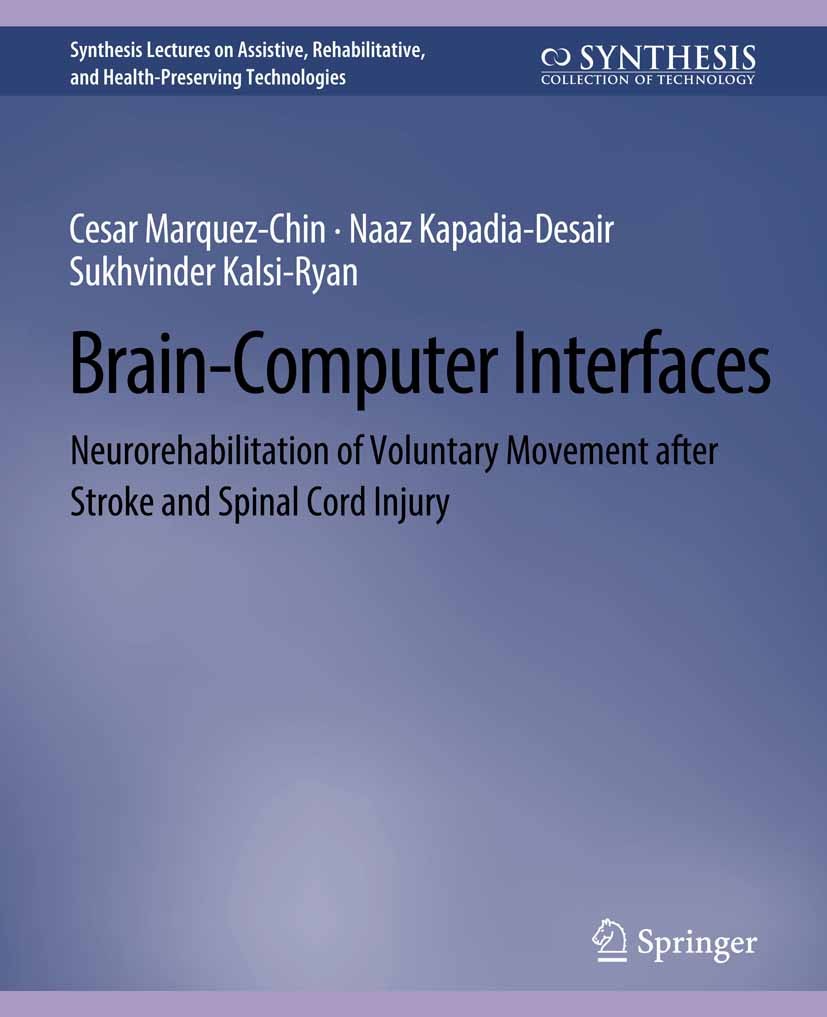| 期刊全稱 | Brain–Computer Interfaces | | 期刊簡稱 | Neurorehabilitation | | 影響因子2023 | Cesar Marquez-Chin,Naaz Kapadia-Desai,Sukhvinder K | | 視頻video | http://file.papertrans.cn/191/190338/190338.mp4 | | 學科分類 | Synthesis Lectures on Technology and Health | | 圖書封面 |  | | 影響因子 | Stroke and spinal cord injury often result in paralysis with serious negative consequences to the independence and quality of life of those who sustain them. For these individuals, rehabilitation provides the means to regain lost function. Rehabilitation following neurological injuries has undergone revolutionary changes, enriched by neuroplasticity. Neuroplastic-based interventions enhance the efficacy and continue to guide the development of new rehabilitation strategies. This book presents three important technology-based rehabilitation interventions that follow the concepts of neuroplasticity. The book also discusses clinical results related to their efficacy. These interventions are: functional electrical stimulation therapy, which produces coordinated muscle contractions allowing people with paralysis to perform functional movements with rich sensory feedback; robot-assisted therapy, which uses robots to assist, resist, and guide movements with increased intensity while also reducing the physical burden on therapists; and brain–computer interfaces, which make it possible to verify the presence of motor-related brain activity during rehabilitation. Further, the book presents t | | Pindex | Book 2021 |
The information of publication is updating

|
|
 |Archiver|手機版|小黑屋|
派博傳思國際
( 京公網(wǎng)安備110108008328)
GMT+8, 2025-10-14 00:50
|Archiver|手機版|小黑屋|
派博傳思國際
( 京公網(wǎng)安備110108008328)
GMT+8, 2025-10-14 00:50


